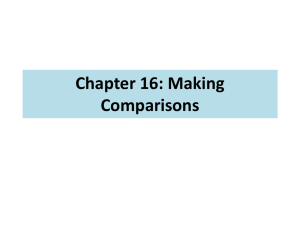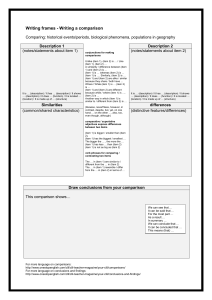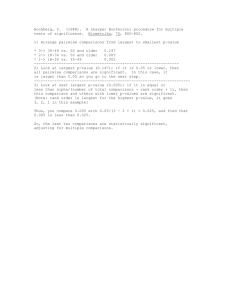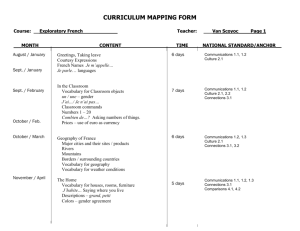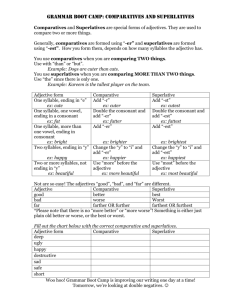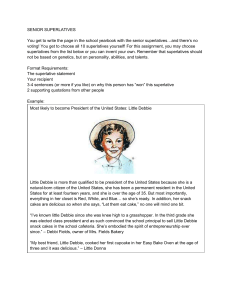Lec 8.3 Comparisons
advertisement
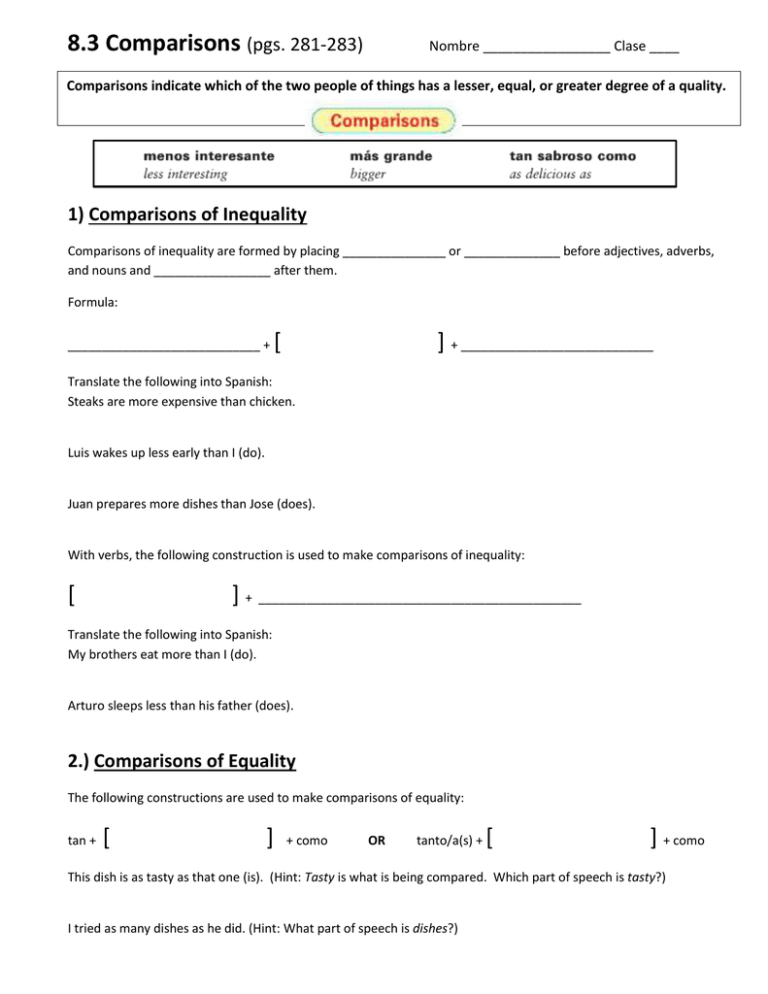
8.3 Comparisons (pgs. 281-283) Nombre _________________ Clase ____ Comparisons indicate which of the two people of things has a lesser, equal, or greater degree of a quality. 1) Comparisons of Inequality Comparisons of inequality are formed by placing _______________ or ______________ before adjectives, adverbs, and nouns and _________________ after them. Formula: ____________________________ + [ ] + ____________________________ Translate the following into Spanish: Steaks are more expensive than chicken. Luis wakes up less early than I (do). Juan prepares more dishes than Jose (does). With verbs, the following construction is used to make comparisons of inequality: [ ] + _______________________________________________ Translate the following into Spanish: My brothers eat more than I (do). Arturo sleeps less than his father (does). 2.) Comparisons of Equality The following constructions are used to make comparisons of equality: tan + [ ] + como OR tanto/a(s) + [ ] + como This dish is as tasty as that one (is). (Hint: Tasty is what is being compared. Which part of speech is tasty?) I tried as many dishes as he did. (Hint: What part of speech is dishes?) 3.) Irregular Comparisons Some adjectives have irregular comparative forms. Adjective Comparative form bueno/a – good malo/a – bad joven – young viejo/a – old Translate the following into Spanish: mejor - better peor – worse menor – younger mayor - older The doctor is older than Isabel. They sing worse than the other girls. 8.4 Superlatives (pgs. 286-287) Superlatives express the highest or lowest degree of a quality. The following construction is used to form superlatives: (Note that the __________ is always preceded by a _______________________________ and that _____ is equivalent or the English _____ or ______.) el/la/los/las + [ ] + más/menos + [ ] + ________ Translate the following to Spanish: Seattle is the most beautiful city. Chicken is the most delicious food in the restaurant. Write the Irregular Superlatives for: Adjective Superlative form bueno/a _____________ malo/a _____________ grande _____________ Adjective pequeño/a joven viejo/a Superlative form _____________ ______________ _____________ Absolute Superlative is equivalent to ___________________, super, or __________. To form the absolute superlative of most adjectives and adverbs, drop the ___________________, if there is one, and add ____________. malo _______ mucho ________ _______________. The steak is really bad. ____________________________________. ________________. He eats very much. _____________________________________.
